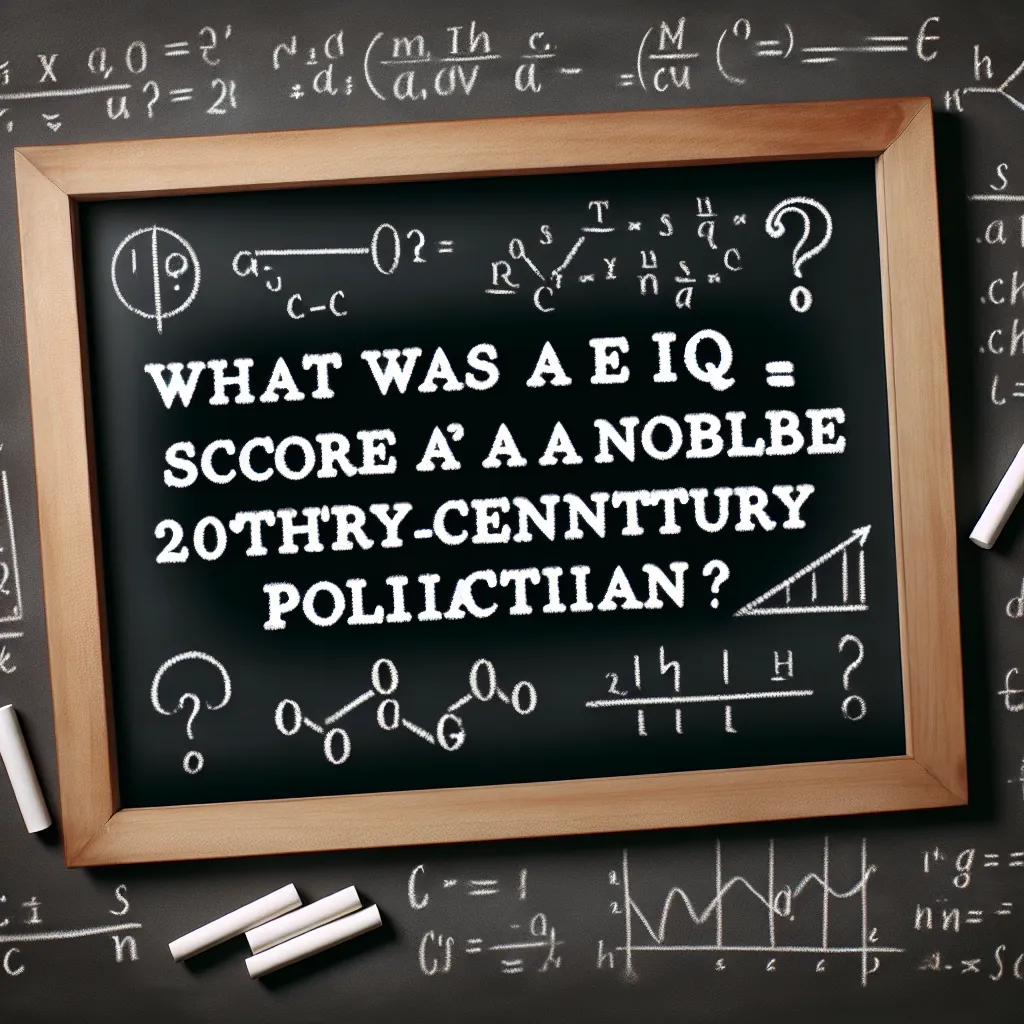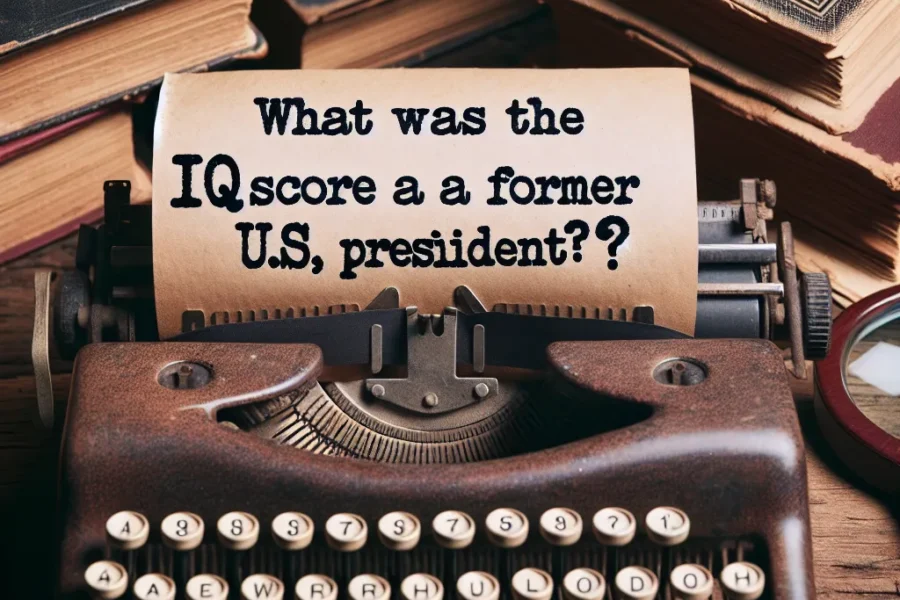When discussing prominent figures in history, the topic of intelligence inevitably arises. Jimmy Carter, the 39th President of the United States, is often subject to such analysis. Yet, what many want to understand is, what was Jimmy Carter’s IQ score? This question encompasses more than just a number; it delves into the essence of Carter’s intellect, his achievements, and his legacy.
If you are looking for legitimate IQ Tests which pass the entry bar for Mensa, see our IQ Tests.
To begin with, Jimmy Carter was born on October 1, 1924, in Plains, Georgia, a small rural town. His upbringing on a farm provided him with an early education grounded in perseverance and a close connection to the land. But soon, Carter’s intellectual promise began to emerge. He graduated from Plains High School in 1941 as valedictorian and went on to attend Georgia Southwestern College briefly before transferring to the Georgia Institute of Technology followed by the United States Naval Academy. Notably, Carter graduated from the Naval Academy in 1946, standing 59th out of 820 midshipmen, demonstrating a high level of academic aptitude.
From this background, it’s clear that Carter’s intellect and work ethic were substantive, but numbers like an IQ score can be elusive and sometimes even misplaced because they may not fully encapsulate an individual’s intellectual capability or achievements. So, what was Jimmy Carter’s IQ score? While records and exact details can be hard to pin down, various sources estimate his IQ to be in the range of 150. This places him well above the average, indicating a highly superior intellectual performance.
IQ scores typically follow a distribution where scores above 130 are considered superior, and scores above 140 are deemed to be very superior or indicative of giftedness. Hence an IQ score of 150 places Carter in approximately the top 0.2% of the population. This level of intelligence is often found in individuals who are capable of advanced problem-solving, which Jimmy Carter demonstrated throughout his career.
Carter’s naval career offers additional insight into his intellectual capabilities. He served on submarines, a role that required a high degree of technical knowledge and analytical thinking. Later, he was involved in pioneering work in the fledgling nuclear submarine program under Admiral Hyman Rickover. This was a testament to his proficiency in both engineering and leadership. Those who have worked in technical and scientific fields understand that such an endeavor requires meticulous precision, problem-solving skills, and an aptitude for advanced theoretical concepts—all hallmarks of significant intellectual capacity.
However, Carter’s intellectual pursuits were not limited to the military or academic achievements. When he transitioned from the Navy to civilian life to manage the family peanut business and later involve himself in politics, he demonstrated adaptability and applied intelligence in new arenas. Under Carter’s stewardship, the peanut farm flourished, displaying his business acumen and strategic thinking.
His political career further demonstrated his broad spectrum of intellect. He became Governor of Georgia in 1971, focusing on issues such as government reorganization, education, and civil rights—all of which required innovative thinking and strategic planning. In 1976, Carter launched his presidential campaign, which was notable for its grassroots approach. Utilizing innovative strategies and a deep understanding of the American political landscape, Carter was able to achieve what was considered an improbable victory. Again, these are testaments to his strategic acumen and intellectual flexibility.
As the President of the United States, Carter faced numerous challenges, from the energy crisis to the Iran hostage situation, and the economic downturn. His approach to these problems often involved deeply analytical and methodical problem-solving. Although his presidency is sometimes viewed through a critical lens, reflecting on the complexities and the solutions he proposed often reveal a nuanced understanding and a high degree of intellectual engagement. For instance, his commitment to energy policy and environmental issues was ahead of its time, showing foresight and a scientific understanding not common among politicians of his era.
Carter’s post-presidency has also been marked by significant achievements and intellectual engagements. He has been profoundly active in international diplomacy and peacemaking through the Carter Center, an organization he founded. The Carter Center’s work in conflict resolution, human rights, and public health highlights his ongoing commitment to employing intellectual resources for global good. His efforts earned him the Nobel Peace Prize in 2002, yet another indication of his intellectual and moral leadership.
Moreover, Carter’s literary contributions cannot be overlooked. He has authored numerous books, ranging from memoirs to books on religion, reflecting his depth of thought and expansive interests. His writings offer insights into his values, beliefs, and an analytical mind that continually seeks to understand and improve the world.
Evaluating someone exclusively by an IQ score can be limiting, but understanding that Carter’s purported IQ of 150 sits within the context of his life achievements provides a fuller picture. Carter’s vast contributions to society in multiple realms—military, political, humanitarian, and intellectual—suggest that his intelligence was not only characterized by cognitive capacity but also by emotional intelligence, ethical values, and a relentless pursuit of knowledge and justice.
It’s also essential to recognize that while IQ can give some insight into cognitive abilities, it does not measure creativity, emotional intelligence, or moral convictions—all of which Carter possesses in abundance. His multifaceted career demonstrates how a high IQ can be just one aspect of a well-rounded and impactful individual.
In conclusion, Jimmy Carter’s IQ score, estimated around 150, places him among the highly intelligent. However, it’s his application of that intelligence across various fields—ranging from his military service and political leadership to his humanitarian efforts and literary pursuits—that truly define his legacy. Carter’s life is a testament to the notion that intelligence, in its many forms, can be a powerful tool for positive change and enduring impact. This synthesis of intellect, character, and dedication surely makes Jimmy Carter an exceptional figure, regardless of the numerical value of his IQ score.



Leave a Comment